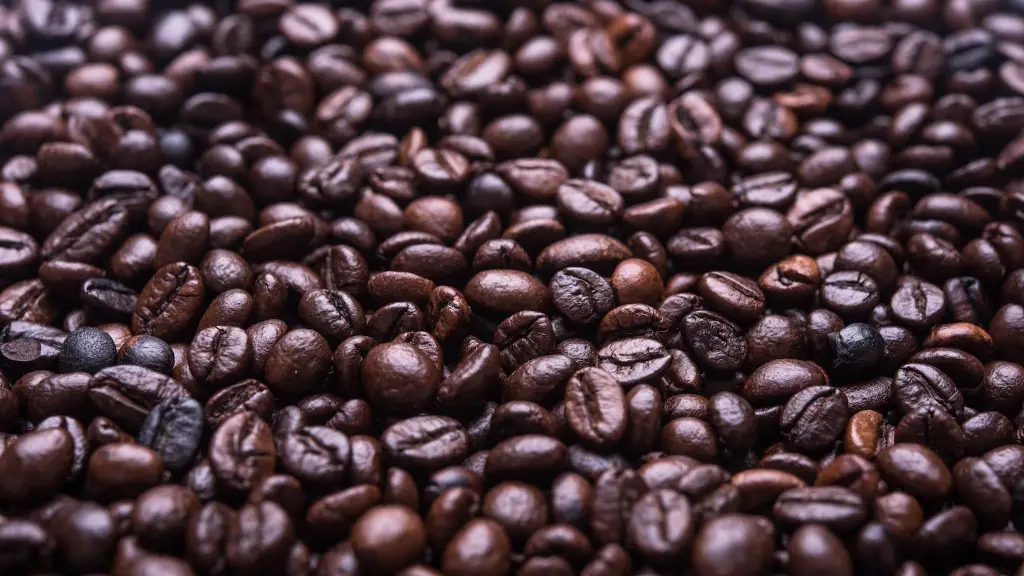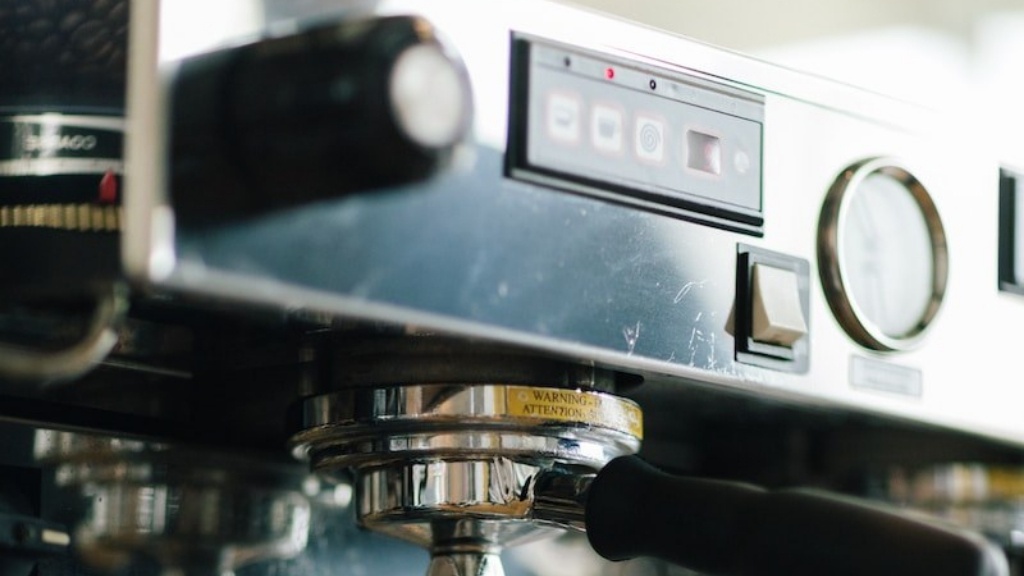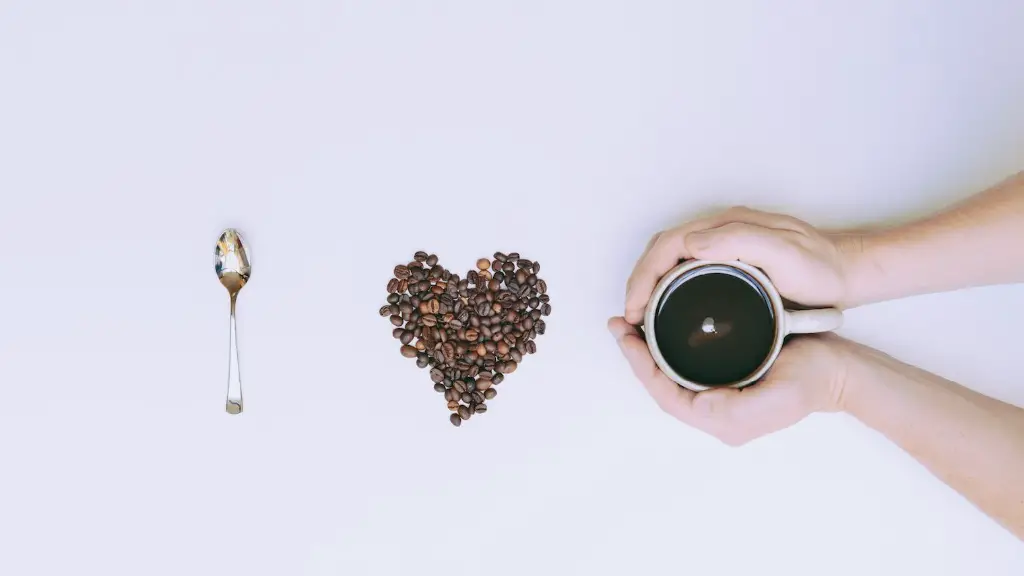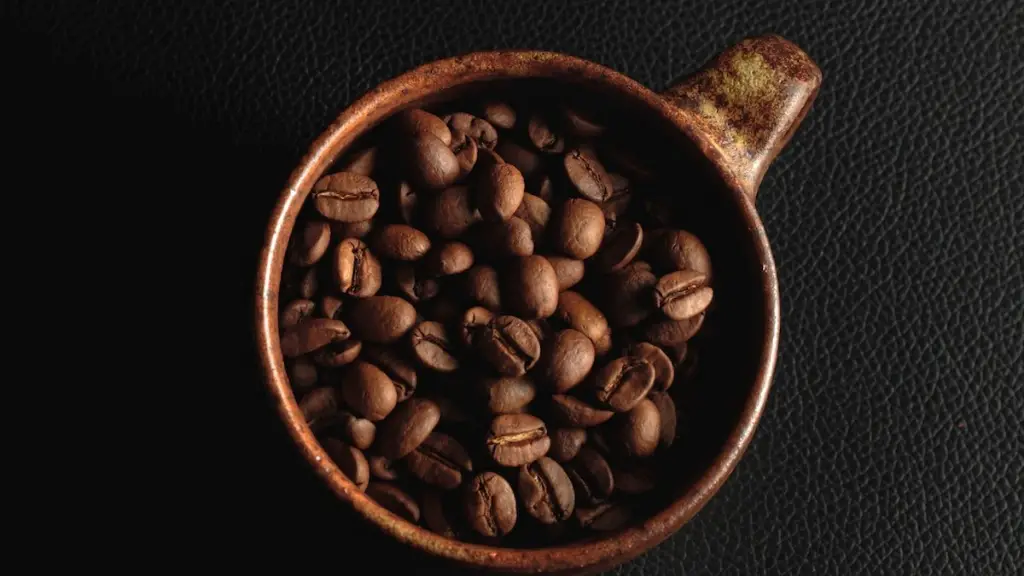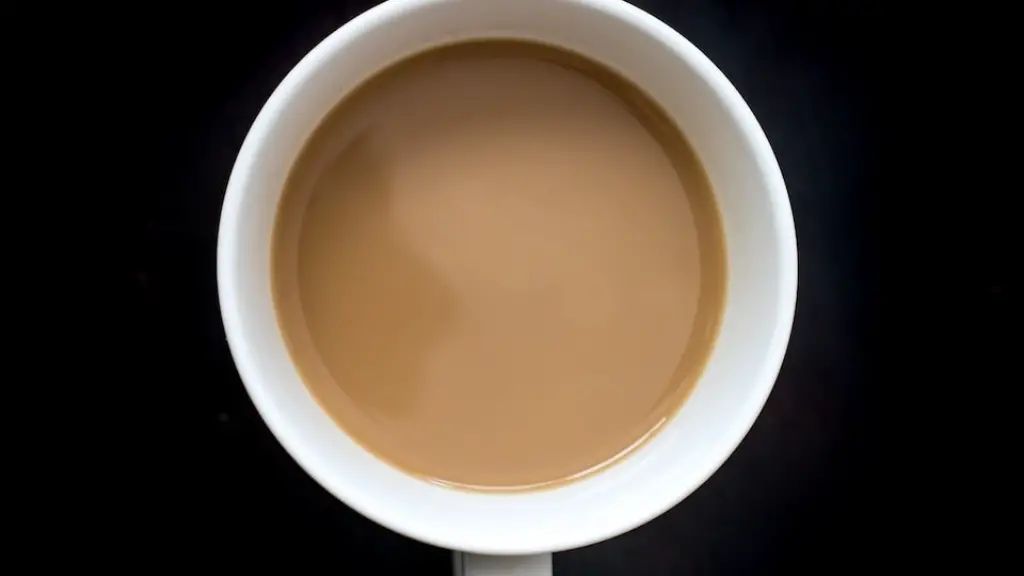Most of us enjoy a cup of coffee as part of our morning routine, but what about when you’re preparing for a fasting blood test? Can coffee interfere with the results? Fortunately, research suggests that consuming caffeinated beverages during the night before a fasting test is acceptable. So, you don’t have to give up your morning espresso before your next blood test.
It is important to know what a fasting blood test is and why it is given. This type of test measures the level of certain substances in the blood and looks for abnormalities in the blood cells. It helps to diagnose conditions such as diabetes, kidney and liver diseases, thyroid problems, Vitamin deficiencies and others. To get the most accurate results, it is important to fast for 9-12 hours prior to the blood test. This means no food or drink should be consumed during this period.
Although this recommendation of a fasting period is standard procedure, research has shown that consuming some beverages like coffee during a fast will not interfere with the results. However, caffeine can cause changes in blood sugar levels and so, it is important to keep track of your coffee intake. One study published in The American Journal of Clinical Nutrition indicated that drinking caffeinated beverages during an overnight fasting period does not alter the results significantly.
In addition to this, drinking coffee can actually be beneficial for some people during a fasting period. Coffee contains natural antioxidants which help to cleanse our bodies. A cup of black coffee in the morning can reduce the feeling of hunger, increase focus and alertness, and give you extra motivation for the day ahead. If you do decide to consume coffee during a fasting period, it is important to limit your intake to one or two cups and make sure the coffee is black or with the addition of low-fat milk.
Fortunately, if you are trying to give up coffee in preparation for a fasting blood test, you have plenty of other options. Herbal teas are a great alternative as they are rich in antioxidants and have a calming effect on the body. Some of the most popular types of herbal tea include chamomile, peppermint, ginger, and green tea. It is also a good idea to drink lots of water as it helps to flush out the toxins in your body and hydrate your cells.
Before having a fasting test, it is important to talk to your doctor to make sure you are following the correct protocol and guidelines. Your doctor can provide you with personalized advice and support to help you prepare for your fasting test properly. They may also advise on what types of food and drinks are safe for you to consume during the period.
Caffeinated Beverages And Their Impact On Fasting Tests
When preparing for a fasting test, most people are advised to completely avoid consuming any food or beverages, including coffee. However, this may not be necessary as some studies have indicated that drinking coffee during fasting tests has no adverse effects and in some cases, may even be beneficial.
Caffeinated beverages like coffee contain natural antioxidants which can act as a powerful source of nourishment for the body. They can also help to reduce the feeling of hunger, increase alertness and mental focus, thus improving mental performance. When consumed appropriately, caffeinated beverages during a fasting test are unlikely to affect the results.
In addition to this, a recent study published in The American Journal of Clinical Nutrition suggested that coffee may even help break down lipid accumulations in the body, known as LDL cholesterol, which, if left unchecked, can cause heart disease and stroke. Thus, the beneficial effects of coffee during a fasting test extend beyond simply enhancing caffeine alertness.
Despite this, it is important to limit your intake of coffee or other caffeinated beverages during a fasting test. Generally, drinking only one or two cups of black coffee during the night is acceptable. However, it is best to talk to your doctor beforehand to ensure that your specific health condition and coffee intake is appropriate for your fasting test.
A Deeper Look Into Caffeine’s Effects
Caffeine is a stimulant found in many plants, including coffee and tea. It is one of the most widely used psychoactive substances and is known for its ability to improve alertness, mental focus, and concentration. But how does it affect fasting tests?
The effects of caffeine on the body and brain depend on how it is metabolized. During the digestion process, caffeine is broken down and enters the bloodstream quickly, giving us a mental boost. However, this also means that caffeine can temporarily interfere with the absorption of other substances in the blood, such as glucose, insulin, and cholesterol. Therefore, it is important to limit your intake of caffeine during a fasting test.
In addition to this, caffeine can also cause an increase in the heart rate and blood pressure, which can in turn lead to anxiety, restlessness, and insomnia. Therefore, when preparing for a fasting test, it is important to be mindful of your caffeine intake and ensure that it is within the recommended limits.
Moreover, certain medications and medical conditions can also be affected by caffeine. Therefore, it is always a good idea to check with your doctor before consuming caffeine, especially during a fasting test. Additionally, caffeine may also act as a diuretic and therefore, increase thirst and dehydrate the body.
Other Non-Caffeinated Beverages For Fasting Tests
If you are trying to cut down your caffeine intake to prepare for a fasting test, there are plenty of other non-caffeinated beverages that can provide a nutritious and refreshing alternative. Herbal teas, for instance, are an excellent choice as they are rich in antioxidants, can help reduce stress and anxiety, and can even promote better sleep.
Fruit and vegetable juices are another great option as they are packed with vitamins and minerals, can help cleanse the body, and are full of flavor. Additionally, they provide a quick source of energy, making them ideal for those mornings when you need a boost. If you are looking for a source of protein, smoothies and milkshakes are a great way to get the nutrition your body needs without the added sugar and preservatives.
Finally, plain old water is always a great choice for staying hydrated during a fasting test period. It helps to flush out toxins from the body and allows the cells to absorb essential nutrients more effectively. Drinking water also aids in digestion and can help reduce the feeling of hunger.
Is It Safe To Drink Coffee During A Fasting Blood Test?
Studies have suggested that drinking black coffee or other caffeinated beverages during a fasting period does not significantly alter the results of a fasting blood test. However, it is important to keep in mind that caffeine can cause changes in blood sugar levels and can also interfere with some medications. Therefore, it is best to consult your doctor to ensure that your specific health condition and caffeine intake are appropriate for the fasting test.
In addition to this, there are many other non-caffeinated beverages that can provide a refreshing alternative, including herbal teas, fruit and vegetable juices, and smoothies. Drinking plenty of water during the fasting period is also essential to stay hydrated and flush out toxins, while also helping to reduce the feeling of hunger.
Potential Risks Of Drinking Coffee During A Fasting Test
Drinking coffee during a fasting test is generally considered safe. However, it is important to keep in mind that certain medical conditions and medications may be affected by caffeine, as it can interfere with the absorption of other substances in the bloodstream. Therefore, it is always best to consult your doctor and get personalized advice about your caffeine intake.
In addition to this, the effects of caffeine on the body may be heightened during a fasting test period. Caffeine can increase the heart rate, blood pressure, and cause anxiety and restlessness. Therefore, it is important to limit your intake to one or two cups of black coffee or other caffeinated beverages. It is also important to stay hydrated during this period and drink lots of water to help flush out toxins.
A Summary Of The Benefits Of Coffee During A Fasting Test
Despite potential risks, drinking black coffee or other caffeinated beverages during a fasting test can provide some benefits. Caffeinated beverages contain natural antioxidants that help nourish and cleanse the body. Furthermore, drinking coffee during a fasting period can reduce the feeling of hunger, increase mental focus, and improve alertness.
Although research has suggested that consuming caffeinated beverages during a fasting test is generally safe and may not interfere with the results, it is best to talk to your doctor beforehand. They can provide personalized advice and support on the best course of action for your health condition and caffeine intake.
